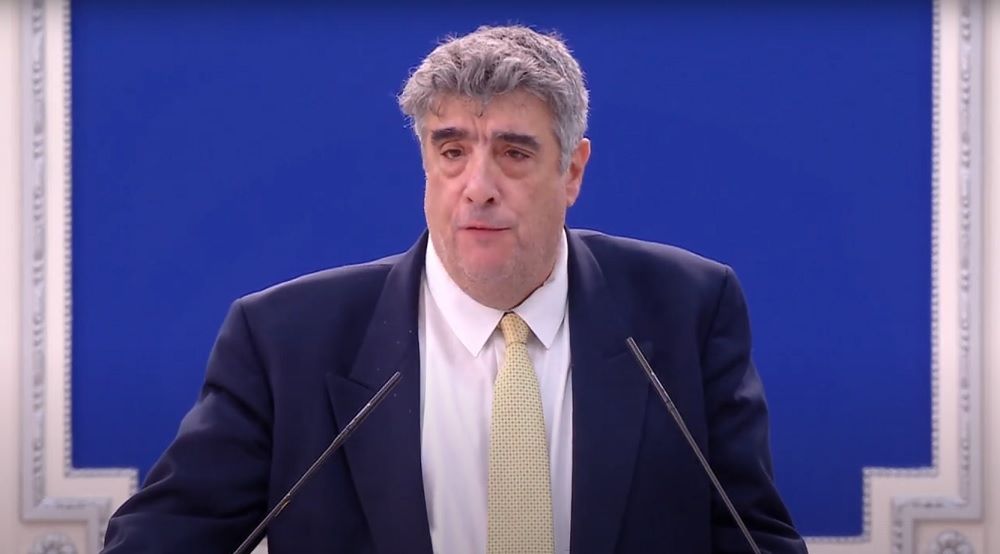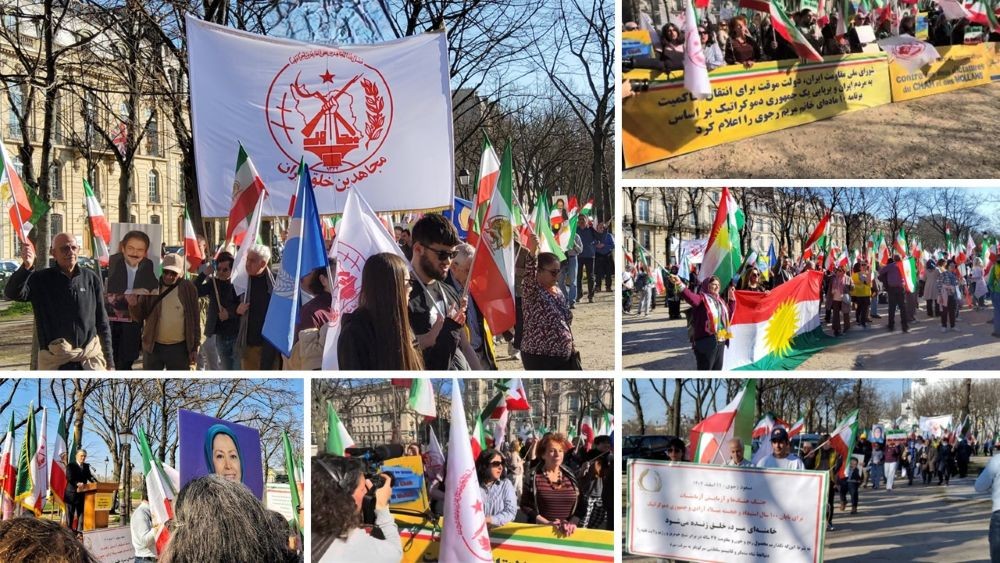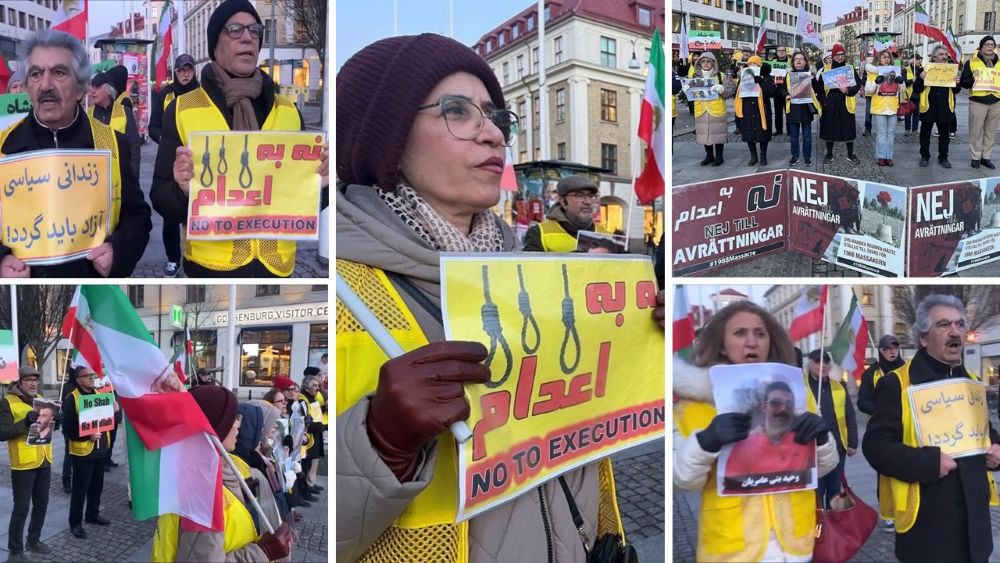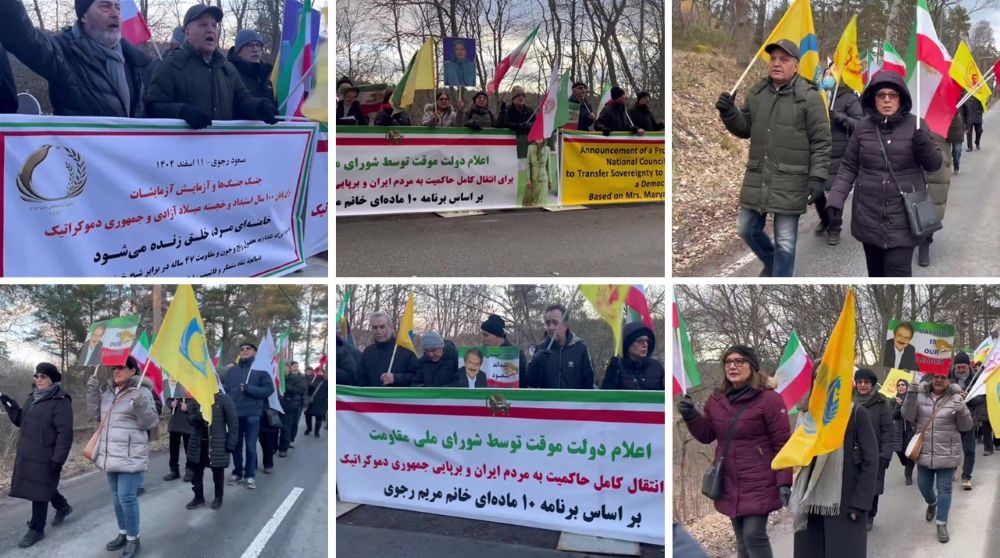
Professor Jeremy Sarkin, former Chair-Rapporteur of the UN Working Group on Enforced or Involuntary Disappearances (WGEID), recently addressed a conference on human rights violations in Iran. Drawing on his extensive United Nations experience, Sarkin stressed the need for a comprehensive approach to justice, urging that accountability extend beyond the 1988 massacre and other atrocities. He highlighted the importance of addressing truth, reparations, memorialization, and guarantees of non-repetition as part of the broader justice process.
Referencing his involvement with Syrian organizations in 2025, Professor Sarkin discussed the creation of an independent institution dedicated to locating missing persons. He proposed that a similar framework be established for Iran, considering the many enforced disappearances reported over the years.
Sarkin also called for increased international cooperation to tackle the issues of enforced disappearances and arbitrary detentions in Iran. He noted that despite an invitation extended to the WGEID by Iran in 2002, no official visit has occurred, leaving numerous cases unresolved. He urged continued efforts by UN bodies and other organizations to hold the Iranian government accountable, even in the face of limited access to the country.
The full text of Professor Jeremy Sarkin’s speech follows:
Ladies and gentlemen, thank you very much.
Thank you very much for the invitation. Let me say I was very grateful that these survivors came before me because I think that’s the context that I really want to address these particular questions today.
If we think about 36 years ago, it was 1988, 42, 43 years ago, 1981, 1982, and all the processes in between, we see that survivors and victims and their families have waited a long time for many different things.
We’ve been discussing accountability today, but I want to widen it out and say, that while we’ve mentioned issues of truth, reparations, memorialization, guarantees of non-repetition, and a whole range of other things, those are the things that I believe ought to be emphasized much more.
Yes, it’s about justice and certainly, it’s important to have justice and have accountability and get international trials. But we should also be focusing on transitional justice. Those are the elements that are much more victim-focused.
I agree with Mark Ellis saying justice is about victims, but I also implore the idea that we need to do much more specifically for victims, providing them reparations, providing truth, providing issues of guarantees of non-repetition, issues of memorialization, issues of apologies, a whole range of issues which are important.
So certainly, as, was said before, we’ve looked at what happened, we looked at why it happened, but I also think we should be looking much more at what should happen in addition to justice. We’ve been talking about a range of processes and I endorse what Leila Sadat said, Mark Ellis said, and a range of other people have about how to get greater justice going forward.
Certainly, the Syrian situation has brought a tremendous number of trials, particularly around Europe, to hold particularly torturers at different levels of government accountable for what was done in Syria. What has not got much press was something that I was involved in.
In 2025, Syrian organizations came to speak to me and asked me to help them get the UN to create a process that focused on finding disappeared people. And as you would know, there’s somewhere in the order of 150,000. That’s the general idea of people who have been detained and have never been found before. Although I think the number is probably closer to a million.
I drafted a report, wrote a book, and presented it to the General Assembly last year, the General Assembly created a mechanism called the Independent Institution for Missing Persons, which is really focused on disappeared people, and that’s what we should be looking at also for Iran and other places around the world.
This is the first time there’s an international process, that specifically focuses on the needs of victims particularly. When I saw the victims and survivors before and the earlier families that came forward, we needed to do much more to address their needs. They wish to know, as people always say, what happened to their loved ones. They need to know what the circumstances were.
They know that there have been mass graves, and there are mass graves. How do we determine who’s in those mass graves? So, we can look at the Syrian situation, which says, we don’t have to wait until the end of the conflict. That was one of the big dilemmas that was, thrust upon me as I was doing this work. Everybody said, but you have to wait until the war in Syria is over.
Until the civil war is over, there’s no point in talking about those things. But what we know is there’s tremendous amounts of information for Syria. Outside of Syria, exactly the same for Iran.
There are tremendous amounts of material and at least all the testimonies of survivors and their family members that can be put together and databases created. Processes that allow those particular issues to come forward.
So, if we think about what happened in the prisons, the torture, the arbitrary detentions, the sham trials, the types of abuses that the different types of security forces used. All those issues need to be, coming forward. We need to have testimony on those particular issues. We don’t have to wait until there’s a regime change for that type of accountability to happen.
So certainly, it’s important to deal with those particular issues. When I was chair of the working group, we had testimony about Camp Ashraf, and there needs to be an investigation into those particular circumstances.
The 7 people who were forcibly disappeared, and their families still want to know where they are. What happened to the, 55 or more people who were killed on that particular day in 2013 needs answers, and families need to know those particular things.
So, I have solidarity with the people in, Ashraf 3 in Albania, but the issues relating to Ashraf 1, Camp Liberty, and the other places also need to be dealt with. There’s also a question on the accountability of Iraq about what happened as far as those victims were concerned.
And those issues need to come to the fore. As Mister Boumedra said, the UN also has some accountability to deal with in terms of those particular issues. The UN doesn’t often face accountability. It’s done on 1 or 2 occasions in relation to and the Dutch courts were not that in favor of dealing with those particular cases, but there’s a need to kind of deal with those particular circumstances in a much wider session.
So certainly, yes, there needs to be accountability through prosecutions. Yes, we can learn lessons from the IIIM and the IIM, the one for Syria, and the one for Myanmar, about how we use the courts in other countries and their important institutions which are based around the world help to build files to hold people accountable for those particular issues.
We can also learn from the examples of the Turkish tribunal which was set up in Belgium. We can learn examples from the Russell tribunal that was set up and has been investigating India, issues relating to Kashmir and other parts of India and other parts of the world. We can also see the availability of various, commissions of inquiry and how that can be used to bring greater justice for those particular issues.
But it’s also about finding disappeared persons. What is their fate? Where are they buried? As, Professor Rehman said, an enforced disappearance is not a completed crime until the person’s whereabouts are detected. That’s one of the best remedies in relation to international crimes because that’s one of the few crimes that is not closed and therefore, the statute of limitations does not apply.
So disappeared persons, arbitrary detentions, and extrajudicial killings often overlap because we don’t know the circumstances are a useful vehicle to drive those particular issues forward. So, we ought to be looking at truth processes.
Certainly, in the future when there’s regime change, we would like an internal truth commission that is independent, legitimate, trustworthy, and made up of people who can be relied upon, not people who are placed there for political reasons.
So, it needs to be done through consultation. But in the meantime, there can be external truth processes to gather all the information, and I believe that some of that’s being done. But it’s important to do it systematically, to do it in a way that others can rely on the future in terms of dealing with those particular issues.
We also need an institution like the one set up for Syria to deal with the processes because, similar to the Syrian situation, there are tens of thousands of people who’ve disappeared in Iran since the 1980s. The working group on enforced disappearances got hundreds of cases reported to them in the 1980s. I went and checked the latest report which was released a couple of weeks ago. There are more than 600 cases outstanding from Iran. The working group last year issued the most amount of urgent allegations against Iran more than any other country.
There are tremendous issues that need to be taken forward at the international level to deal with those particular circumstances. Iran invited the working group to come and visit Iran in 2002, but that invitation has not come to fruition.
That would be an important step in terms of accountability. It’s unlikely that Iran will do so and therefore, groups like the working group, the working group on arbitrary detention and others can do things external to the country.
They shouldn’t use the reason that they cannot visit the country as a reason not to take up those particular matters. So, truth processes are critical. They contribute enormously to what victims need in terms of understanding and learning specifics about particular people. What happened to them? Getting affidavits and processes for the future is particularly important.
Providing a platform for victims to testify, giving them a voice, and allowing them to contribute to processes of healing is critically important and those things need to be far more focused on. It’s also about setting a process for the future about what type of constitutional system should there be for Iran. Who should be created in terms of structures? What type of human rights institutions should they be? What type of federal system ought there to be?
But it’s also about creating monuments and other types of memorialization. Certainly, difficult within the country but certainly, the plans for the future as to how those will be unfolded. How can issues relate to guarantees of non-repetition? What do we mean by non-repetition? How do we ensure that a state such as Iran now but also in the future is not able to recommit such offenses? How do we ensure oversight of these security forces and a range of other particular issues? How do we preserve memory?
How do we ensure that memorialization becomes an important issue to ensure, as the German minister said, we look back and we remember and we don’t repeat those particular problems that we, that we have that we’ve had in the past?
So, it’s a need to focus on the past but also to ensure we look forward to preventing those abuses from happening again both structurally and also about individuals. Individuals who should be held accountable but also victims and survivors who need closure, accountability, healing, and a whole range of other particular issues.
So, my basic message was in terms of what I wanted to say, and I changed my speech completely after hearing everybody else what they said. I felt that, well, I had nothing more really to say about justice, as we shouldn’t only focus on justice. As I think I said, to the president of the ICC, last night, when I was young, I learned to walk and chew gum at the same time.
It’s not an either-or. We must have justice, but we also have to deal with the needs of victims for truth, justice, reparations, guarantees of non-repetition, and memorialization.
Many thanks indeed.



